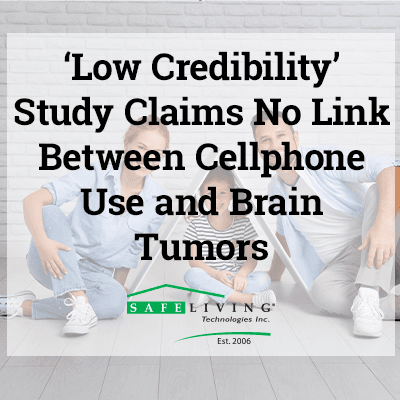‘Low Credibility’ Study Claims No Link Between Cellphone Use and Brain Tumors

‘Low Credibility’ Study Claims No Link Between Cellphone Use and Brain Tumors
The COSMOS study concluded that heavy cellphone use was not associated with an increased risk of developing brain tumors. Some scientists criticized the study’s methodology and suggested that funding by the telecommunications industry may have led to bias.
A new peer-reviewed study concluded that heavy cellphone use was not associated with an increased risk of developing brain tumors. But some critics questioned the results, citing methodological flaws and bias from industry funding.
The authors of the COSMOS study (Cohort Study on Mobile Phones and Health) promoted it as the world’s largest multinational prospective cohort study on the potential health risks of cellphone use.
They said the study, published in Environmental International, found “no evidence” of increased risk for developing three common brain tumors linked to heavy cellphone use.
“Our findings to date, together with other available scientific evidence,” the authors wrote, “suggest that mobile phone use is not associated with increased risk of developing these tumours.”
Dr. Lennart Hardell, a leading scientist on cancer risks from radiation, told The Defender the study “lacked scientific integrity.”
Hardell, an oncologist and epidemiologist with the Environment and Cancer Research Foundation who has authored more than 350 papers — almost 60 of which address radiofrequency (RF) radiation — said he found multiple shortcomings in its methodology and representation of the scientific literature.
“This is a product defense study, not suitable for a scientific journal claiming to have conducted a credible review of a submission,” Hardell said. “Obviously the referees have not done their proper job or have not been listened to. In the latter case, it casts doubt on the scientific credibility of the very journal.”
What Hardell found “most remarkable” was that the study authors failed to cite or reference important studies documenting an increased incidence of brain tumors among those who heavily used a cellphone, he said.
“It is hard to believe that the study authors are so incompetent and/or perhaps so biased towards the ‘no risk’ paradigm,” he said. “One may rightly ask what results they are hiding — at least a clarification is needed.”
“One must also ask if there is influence by industry,” he added.
Mona Nilsson, co-founder and director of the Swedish Radiation Protection Foundation, said there is reason to suspect that industry influenced the COSMOS study.
In an article critiquing the study, Nilsson said telecommunication companies were the ones who initiated the study and provided some of the study’s initial funding. “They have an interest in showing that mobile phones do not have negative health effects.”
Additionally, the researchers who conducted the study “have a long history of dismissing evidence of health risks,” she said. In her opinion, their results have “low credibility.”
Despite the study’s faults, Nilsson predicted it will be used “as effective evidence for the telecom industry” in lawsuits regarding brain tumors alleged to be caused by mobile phone use.
“The study will also be used in expert opinion reports as an argument that radiation from wireless technology does not cause cancer … So the telecom industry’s investment in the COSMOS study has been successful,” Nilsson told The Defender.

